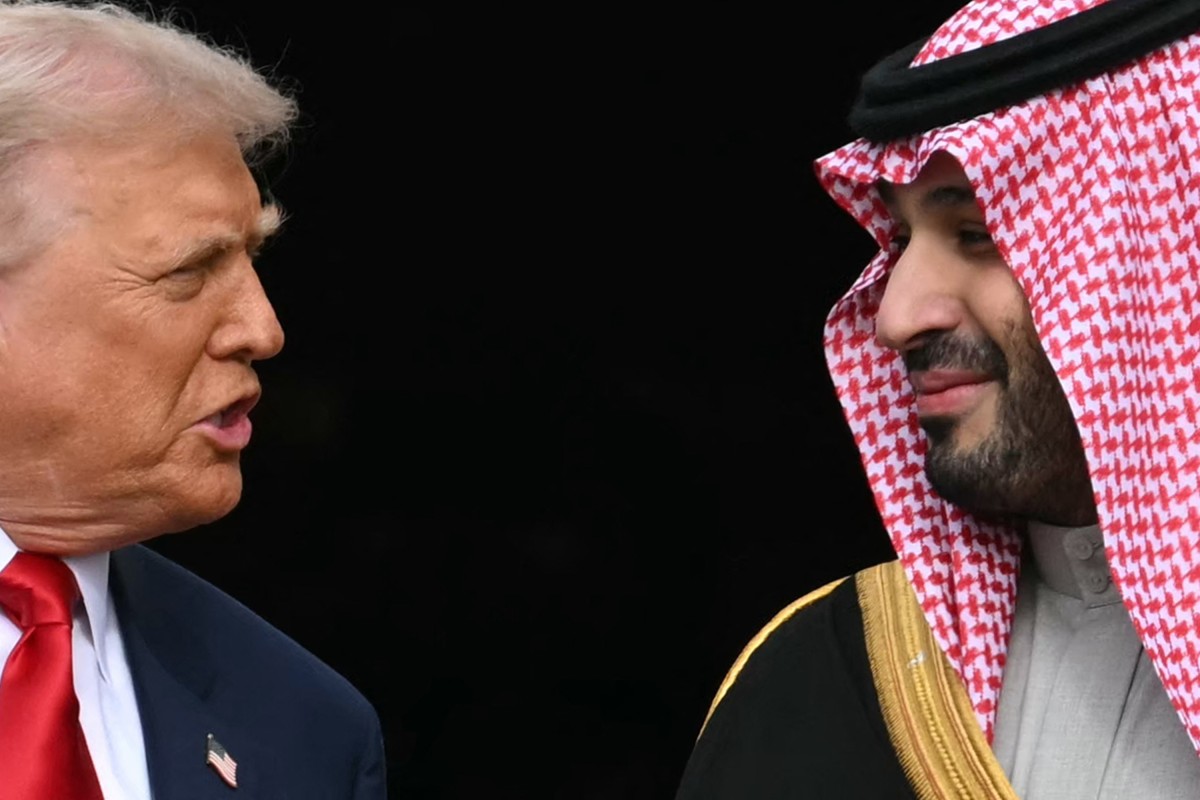Washington, United States – Saudi Crown Prince Mohammed bin Salman bin Abdulaziz Al Saud and US President Donald Trump signed a Strategic Defense Agreement during their meeting at the White House on Tuesday.
The agreement comes within the framework of the long-standing strategic partnership and the deep-rooted historical ties that have united the two countries for more than ninety years. It strengthens long-term defense cooperation and reflects the shared commitment of both sides to supporting peace, security, and prosperity in the region.
The agreement affirms that Saudi Arabia and the United States are capable security partners, able to work together to confront regional and international challenges and threats. It deepens long-term defense coordination, enhances deterrence capabilities and readiness, and supports the development and integration of defense capacities between the two countries.
The agreement also establishes a solid framework for sustained and continued defense partnership, contributing to the security and stability of both nations.
Palestinian statehood key to Israel ties
Saudi Crown Prince said that his kingdom wanted to normalize relations with Israel through US President Donald Trump’s Abraham Accords, but first needed a “clear path” to Palestinian statehood.”We want to be part of the Abraham Accords. But we want also to be sure that we secure a clear path of two-state solution,” crown prince said in the Oval Office alongside Trump.”We’re going to work on that, to be sure that we can prepare the right situation as soon as possible,” he added.
Pressed by Trump, who said that his guest had a “very good feeling” for the Abraham accords, the prince said: “We want peace for the Israelis. We want peace for the Palestinians.”
“We want them to coexist peacefully in the region, and we will do our best to reach that date.”
The United Arab Emirates, Bahrain and Morocco in 2020 became the first Arab states in decades to normalize relations with Israel under the Abraham Accords, hailed by Trump and Israeli Prime Minister Benjamin Netanyahu as a signature diplomatic triumph.
Saudi Arabia would be a much bigger prize due to its status as guardian of Islam’s two holiest sites and its influence in the Arab and Islamic worlds.
Unlike the United Arab Emirates, Saudi Arabia has repeatedly said that Palestinian statehood is its goal.
Netanyahu has long opposed a two-state solution, despite a lukewarm endorsement of Palestinian aspirations in a ceasefire agreement in Gaza pushed by Trump.
Netanyahu leads a coalition with far-right supporters who not only reject Palestinian statehood but want Israel to annex the West Bank.
Saudi-US trade volume exceeds $500 billion
The volume of trade exchange between the Kingdom of Saudi Arabia and the United States of America has surpassed $500 billion over the past decade, making the US the Kingdom’s second-largest import partner. Since 2020, the trade volume has grown by more than 50%, demonstrating the depth and strength of the economic relationship between the two countries. This strategic partnership enhances the competitiveness of vital sectors, attracts quality investments, and expands trade cooperation, ultimately supporting the economic prosperity of both nations.
In 2024, the trade volume reached approximately $33 billion. The most significant Saudi exports were fertilizers and organic chemical products, while the primary US imports included machinery, equipment, mechanical tools, and automobiles, totaling $9 billion. Preliminary data indicate that trade between the two countries reached around $16 billion by the first half of 2025.
The Saudi-US Trade and Investment Framework Agreement (TIFA) Council, chaired by the General Authority of Foreign Trade (GAFT), plays a crucial role in strengthening trade relations. Its objectives are to monitor trade and investment ties, identify expansion opportunities, remove obstacles hindering trade and investment flows, enhance the business and investment environment, and facilitate communication among various sectors in both countries.
The council has facilitated the agreement on 27 initiatives across multiple fields, including standards and metrology, food and pharmaceuticals, artificial intelligence, and intellectual property. Its membership includes 11 Saudi government entities that address trade and investment issues within a defined framework.
The GAFT works to develop bilateral trade relations through coordination councils and joint governmental committees. It aims to enable the Kingdom’s non-oil exports to access foreign markets and assist in overcoming the various challenges they face.








